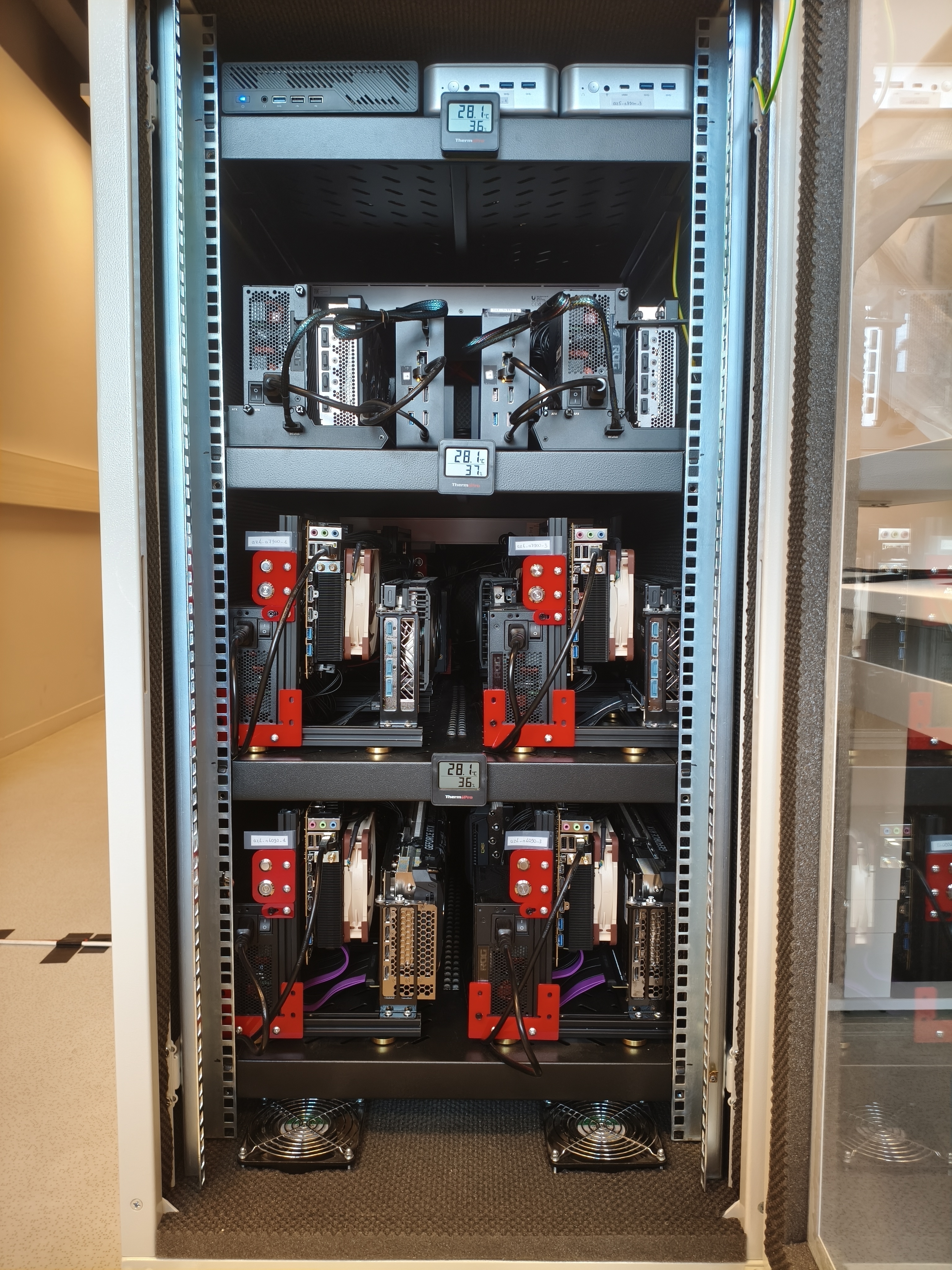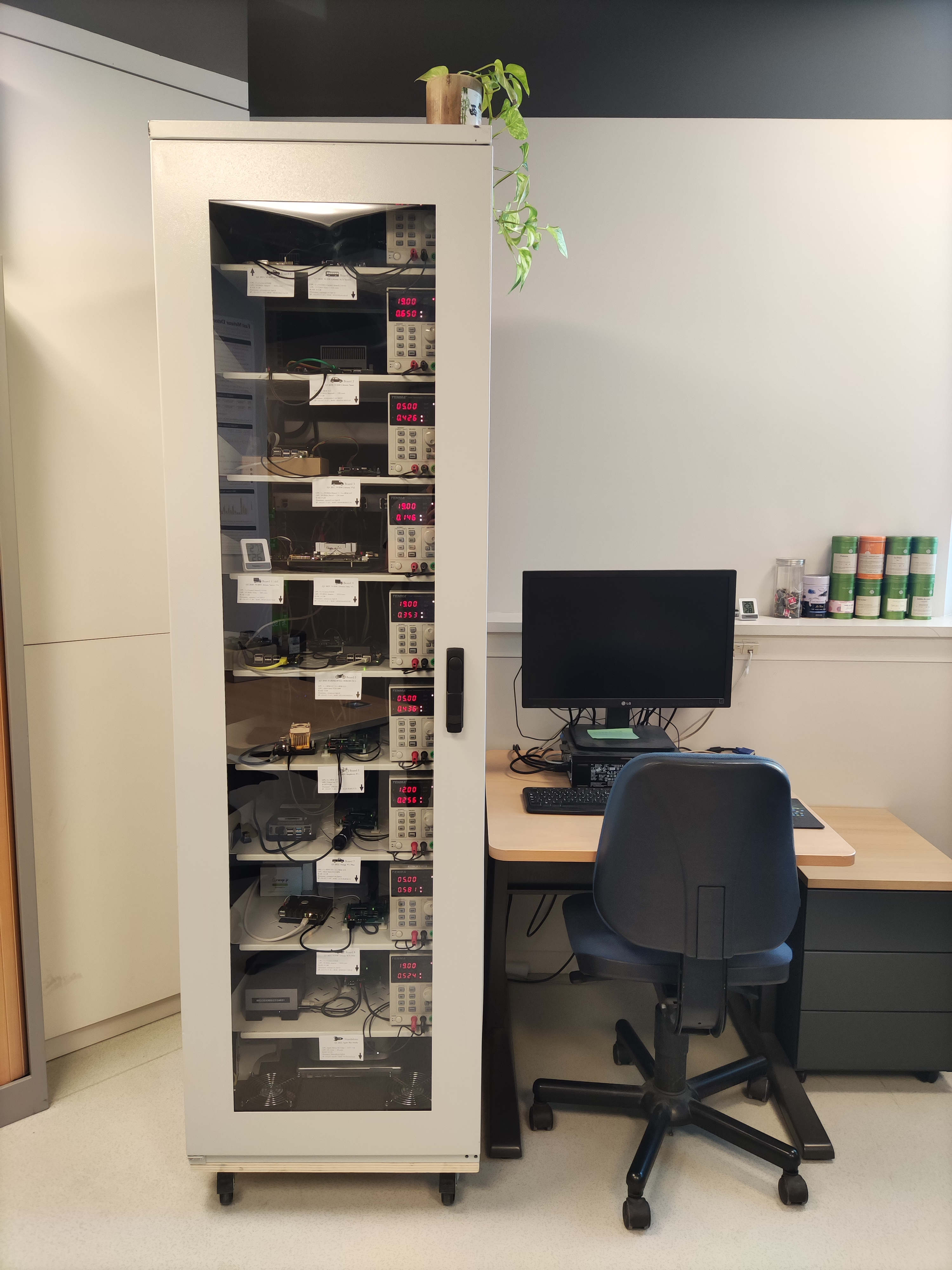Adrien Cassagne
Associate Professor in Computer Science
Sorbonne Université, LIP6
4 Place Jussieu, 75005 Paris, France
Office 24-25/403
+33 1 44 27 65 61
adrien.cassagne@lip6.fr
Short Bio
Since 2021, I hold an Associate Professor position (Maître de Conférences in french) at Sorbonne University (Paris, France) . For my research work, I'm attached to the LIP6 laboratory (Laboratoire d'Informatique de Paris 6) in the ALSoC (Hardware and Software for Embedded System) team .
In 2020, I completed my Ph.D. thesis under the co-supervision of Prof. Denis Barthou (Inria Lab. ) and Prof. Christophe Jégo (IMS Lab. ) in Bordeaux, France. In 2013, I graduated from the Master's degree in Computer Science at University of Bordeaux.
My main research concern is about providing efficient implementations of parallel algorithms for multi-core and heterogeneous programmable architectures. Recently, I've been focusing on low power Systems-on-a-Chip (SoCs) as the energy efficiency is becoming increasingly crucial. In general, I am interested in everything related to efficient software implementations. Here are some of the domains I'm working on (or have worked on in the past):
- Computer Vision on embedded heterogeneous SoCs
- Software-Defined Radio on multi-core & SIMD CPUs
- Inference of Deep Neural Networks on CPUs, GPUs & NPUs
- Computational Fluid Dynamics on Supercomputers (CPUs & discrete GPUs)
I am part of the organizing committee of the IEEE International Workshop on Signal Processing Systems (SiPS 2026) , which will be held in Bordeaux.
Internship Opportunities
MSc Internship Offer n°1 (6 months in 2026) - Implementation of a DVB-S chain with AFF3CT library @ DGA
The Electronic Communications Warfare (Guerre Electronique des Communications in french, GEC) department is offering a six-month internship in its signal analysis laboratory, which analyzes communications signals in a non-cooperative context (no prior knowledge of the signal received and/or in a degraded environment).
The internship focuses on the implementation of the telecommunications chain using the AFF3CT software suite. This is an open software suite co-developed by the IMS, Inria and LIP6 labs.
The study will be based on reading the DVB-S standard and implementing processing using the StreamPU runtime native to the AFF3CT suite.
Open Source Research Software
AFF3CT
A Fast Forward Error Correction Toolbox or AFF3CT is a simulator and a library dedicated to the Forward Error Correction (FEC or channel coding). It is written in C++ and it supports a large range of codes: from the well-spread Turbo codes to the new Polar codes including the Low-Density Parity-Check (LDPC) codes. AFF3CT can be used as a command line program and it simulates communication chains based on a Monte Carlo method.
AFF3CT was first intended to be a simulator but as it developed, the need to reuse sub-parts of the code intensified: the library was born. Below is a list of possible applications for the library:
- Build custom communication chains that are not possible with the simulator
- Facilitate hardware prototyping
- Enable various modules to be used in Software-Defined Radio contexts
Related featured publication: AFF3CT: A Fast Forward Error Correction Toolbox!. Elsevier SoftwareX, October 2019.
MIPP
My Intrinsics++ or MIPP is a portable wrapper for vector intrinsic functions (SIMD) written in C++11. It works for SSE, AVX, AVX-512, ARM NEON and SVE (work in progress) instructions. MIPP wrapper supports simple/double precision floating-point numbers and also signed integer arithmetic (64-bit, 32-bit, 16-bit and 8-bit).
With the MIPP wrapper you do not need to write a specific intrinsic code anymore. Just use provided functions and the wrapper will automatically generates the right intrisic calls for your specific architecture.
Source code »Related featured publication: MIPP: A Portable C++ SIMD Wrapper and its use for Error Correction Coding in 5G Standard. In ACM Workshop on Programming Models for SIMD/Vector Processing, February 2018.
StreamPU
StreamPU is a Domain Specific Embedded Language (DSEL) for streaming applications. It comes in the form of a C++11 library to link with. Its main features are:
- Definition of dataflow components: modules, tasks and sockets
- Elementary modules and tasks implementations
- Multi-threaded runtime with replication and pipeline parallel constructs
The DSEL is suitable for SDR systems, audio/video processing and more generally it matches single-rate Synchronous DataFlow (SDF) streaming applications. It is used as the multi-threaded runtime of AFF3CT and FMDT.
Source code » Documentation »Related featured publication: StreamPU: A DSEL for High Throughput and Low Latency Software-Defined Radio on Multicore CPUs. Wiley Concurrency and Computation: Practice and Experience, July 2023.
FMDT
Fast Meteor Detection Toolbox or FMDT is a software designed to detect meteors. FMDT is foreseen to be applied to airborne camera systems, e.g. in atmospheric balloons or aircraft. It is robust to camera movements by a motion compensation algorithm.
FMDT is ready for real-time processing on small boards like Raspberry Pi 4 or Nvidia Jetson Nano for embedded systems. For instance, on the Raspberry Pi 4 (@ 1.5 GHz), FMDT is able to compute 30 frames per second on a HD video sequence while the instant power is only around 4 Watts.
Source code » Documentation »Related featured publication: A 2022 τ-Herculid Meteor Cluster from an Airborne Experiment: Automated Detection, Characterization, and Consequences for Meteoroids. Astronomy and Astrophysics, February 2023.
Hardware Platforms for Research
 Dalek
Dalek

Dalek is an innovative cluster built around CPUs traditionally used in mini-PCs or laptops and from GPUs that can be found in gaming PCs (or iGPUs). The cluster comes with a wide selection of recent components that can be tested on a variety of algorithms. One of the main purpose of Dalek is to provide such a diversity of components at a moderate price. Indeed, components from the general public are much less expensive than server-class hardware. As a consequence, Dalek feats very well to software design and prototyping as it enables researchers to discover and to experience new hardware just after their release date. The partitions are typically composed of four nodes of the same type and the network is based on 2.5 GbE interfaces.
Here are the four available partitions:
- AMD Ryzen 9 7945HX CPU + Nvidia GeForce RTX 4090 GPU
- AMD Ryzen 9 7945HX CPU + AMD Radeon RX 7900 XTX GPU
- Intel Core Ultra 9 185H CPU + Intel Arc A770 GPU
- AMD Ryzen AI 9 HX 370 CPU + AMD Radeon 890M iGPU
Related featured publication: Dalek: An Unconventional and Energy-Aware Heterogeneous Cluster. July 2025 (preprint) [slides].
 Monolithe
Monolithe

The Monolithe is an experiment platform composed of multiple single board computers (SBCs). The purpose of having all these SBCs together is to be able to evaluate their suitability for embedded applications. In the context of embedded systems (satellites, weather balloons, network equipment, cars, medical devices, smartphones, ...), the energy consumption is a crucial characteristic. For this reason, a specific power measurement platform has been designed and produced in intern. The later is plugged between the power supply and the SBC. Each platform measures voltage and intensity at high frequency: 5000 samples/s.
The cluster is composed of various SBCs:
- Raspberry Pi: 3, 4 and 5
- Nvidia Jetson: TX2, Nano, NX AGX, AGX Xavier, Orin Nano, Orin NX, Orin AGX
- Low power x86: Mercury EM780, AtomMan X7 Ti
- Others: Odroid-XU4, VIM1S, Orange Pi 5 Plus, BPi-F3, M1 Ultra
Teaching
I'm affected to Sorbonne University (UFR d'Ingénierie 919, UM and UL) and to the Polytech Sorbonne engineering school (UFR 933, EPU). I am mainly teaching about parallel programming, computers architecture and operating systems.
[S1-M2:UM5IN160]"Parallelism and Accelerators for Cluster Computing" (Moodle 2025 link )[S1-M2:UM5IN166]"Hot Topics: Evolution of the SIMD ISAs on General Purpose CPUs"[S1-M2:EPU-F9-IHP]"High Performance Computing" (Moodle 2025 link )[S1-L3:LU3IN010]"Principles of Operating Systems" (Moodle 2025 link )[S1-L2:UL2IN004]"Computer Architecture" (Moodle 2025 link )
[S2-M1:UM4IN111]"Parallel Programming for Embedded Systems" (Moodle 2025 link )[S2-L3:EPU-N6-IPS]"Operating System Fundamentals" (Moodle 2025 link )
Supervision
Current Ph.D. Students
- Lucien Martial (from Q4 2025) - Error correction and signal processing in Continuous Variable Quantum Key Distribution (CV-QKD). (supervised by Senior Researcher Eleni Diamanti , CIFRE with Exail company)
- Rémi Laramas (from Q4 2025) - Eco-responsible optimization of application-oriented embedded hardware architecture. (supervised by Prof. Alix Munier Kordon , CIFRE with Thales company)
- Enrique Galvez (from Q4 2025) - Modeling and optimization of execution platforms for deep neural networks on heterogeneous architectures: memory management, energy efficiency, and parallelism. (supervised by Prof. Alix Munier Kordon )
- Yacine Idouar (from Q4 2024) - Task scheduling for applications embedded in a nano-satellite and on heterogeneous SoCs. (co-supervised by Prof. Dimitri Galayko and Prof. Lionel Lacassagne )
Ph.D. Alumni
- Maxime Millet (2024) - Optimization and time/quality trade-offs of an optical flow algorithm on low-power SoC for real-time meteor detection onboard a nanosatellite. (supervised by Prof. Lionel Lacassagne )
Engineers
- Maxime Millet (2025, 4 months) - Integration of the Meteorix computer vision chain into the open-source FMDT toolbox.
Kun He (2019, 1 year) - Development of a MATLAB interface for the AFF3CT C++ library.
Master Internships
- Rémi Laramas (2025, 6 months) - Consumption metrics for assessing the ecological footprint of a program on a microcontroller.
- Lou Thirion (2025, 6 months) - Micro-benchmarking of the RISC-V Vector extension (RVV) on the SpacemiT K1 SoC.
- Johannes Laute (2024, 6 months) - Vectorizing PyTorch for RISC-V Vector extension (RVV).
- Yacine Idouar (2024, 6 months) - Heterogeneous tasks for streaming applications running on SoCs with unified memory.
- Enrique Galvez (2024, 5 months) - Study of convolutions for efficient inference of deep neural networks on embedded processors.
- Mathuran Kandeepan (2023, 6 months) - Execution of streaming tasks graph on heterogeneous CPU/GPU architectures with shared memory.
- Clara Ciocan (2023, 6 months) - Improving the robustness of a meteor detection application with a moving camera.
- Nourdinne Hammachi (2023, 2 months) - StreamPU DSEL extension: Support for control flow in a multi-threaded context (pipeline and replication).
- Yacine Idouar (2023, 2 months) - StreamPU DSEL extension: Implement a new type of read & write data ("forward socket").
- Michaël Baudeur (2023, 2 months) - Implementation of an acquisition system for an Ethernet camera using the Aravis API.
- Clara Ciocan & Mathuran Kandeepan (2022, 2 months) - Development of a computer vision application for meteor detection.
- Maël Keryell (2021, 6 months) - Semi-automatic exploration of computational expressions, finding compromise between efficiency and precision.
Bachelor Internships
- Enrique Galvez (2022, 2 months) - Optimizing the execution of an optical flow application on a heterogeneous & parallel architecture.
- Edgar Baucher (2021, 2 months) - Development of a header only C++ library for the RISC-V Vector extension instruction set (RVV).
- Mehdi Naciri (2019, 4 months) - Development of a web application dedicated to displaying, comparing and searching in a database of scientific results.
- Enrique Galvez (2022, 2 months) - Optimizing the execution of an optical flow application on a heterogeneous & parallel architecture.
- Edgar Baucher (2021, 2 months) - Development of a header only C++ library for the RISC-V Vector extension instruction set (RVV).
- Mehdi Naciri (2019, 4 months) - Development of a web application dedicated to displaying, comparing and searching in a database of scientific results.







